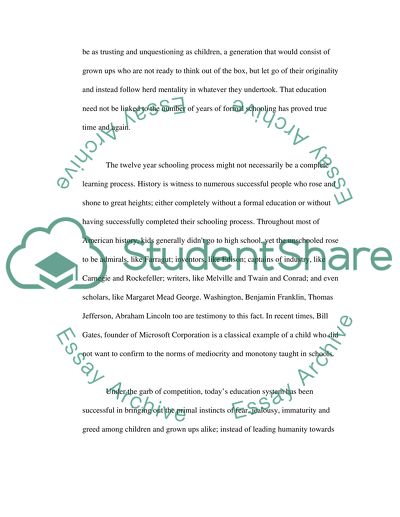Cite this document
(“Schools Discourage Creativity in Children and Teachers Essay”, n.d.)
Schools Discourage Creativity in Children and Teachers Essay. Retrieved from https://studentshare.org/education/1525692-schools-discourage-creativity-in-children-and-teachers
Schools Discourage Creativity in Children and Teachers Essay. Retrieved from https://studentshare.org/education/1525692-schools-discourage-creativity-in-children-and-teachers
(Schools Discourage Creativity in Children and Teachers Essay)
Schools Discourage Creativity in Children and Teachers Essay. https://studentshare.org/education/1525692-schools-discourage-creativity-in-children-and-teachers.
Schools Discourage Creativity in Children and Teachers Essay. https://studentshare.org/education/1525692-schools-discourage-creativity-in-children-and-teachers.
“Schools Discourage Creativity in Children and Teachers Essay”, n.d. https://studentshare.org/education/1525692-schools-discourage-creativity-in-children-and-teachers.


